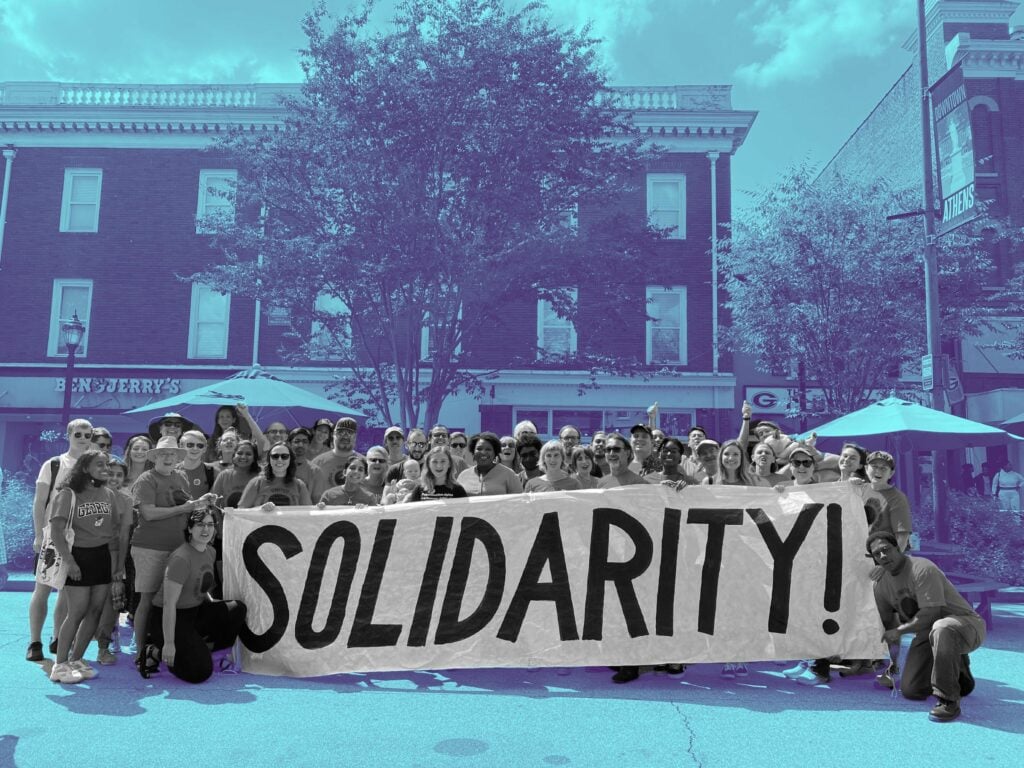Readings
- William J. Astore, “America’s Disastrous 60-Year War,” TomDispatch, February 15, 2022.
- Interview with Rhiana Gunn-Wright, “How the Green New Deal Changed the Conversation,” The New Republic, November 3, 2022.
- Max Elbaum, “Internationalism: Urgent for the Moment and the Long Haul,” Convergence, August 15, 2020.
- Marc Steiner and Bill Fletcher, Jr., “The Rise of the Far Right Is a Global Phenomenon,” The Real News Network, April 24, 2022.
- Usha Kumar, “We Haven’t Seen the Last Vivek Ramaswamy,” Convergence, February 8, 2024
Key Points
- The power relationships between different states and the dynamics of global politics have changed dramatically since the period of the Cold War and the immediate post-Cold War years of capitalist triumphalism centered in the US. New phenomena include the growing strength of right-wing authoritarian movements worldwide; the relative decline of US global hegemony leading to increased discussion of the possibility (and meaning) of a “multi-polar world”; the rise of China and US-China tensions; and the crisis of neoliberal globalization. There are wide differences on the US and global Left, including within the emerging progressive trend in US politics, on how to analyze these phenomena. There remains a commitment to internationalism, anti-militarism, human and class solidarity, and peace, but there is not agreement on how to translate these tenets into action. In numerous specific situations. It will take considerable time and work to unite a critical mass of the left on a perspective that can lead to sustained work at building a powerful movement infused with a coherent internationalist vision.
- Partly because of the above, resistance to Washington’s imperial policies of interventionism, militarism, and war is currently the weakest area of progressive activism. It is urgent to rebuild a powerful peace and solidarity movement and strengthen the internationalist spirit and practice of the entire social justice movement. This is urgent not only because workers and oppressed people outside the US need and deserve our solidarity, but also because the major crises facing humanity—climate change, rising inequality, the spread of new diseases, and the threat of nuclear war—can only be solved by international cooperation. And a social justice movement in the US that cedes political and moral ground to the national security state can never achieve its political goals.
- Climate change is a threat to human survival. Already it is devastating regions and communities across the globe, driving people from their homes, increasing health risks, spreading disease, and worsening inequality in numerous areas. Without a much more rapid end to the use of fossil fuels than is being implemented by all but a handful of countries, environmental degradation and its consequences will only accelerate. The fight against climate change and for environmental protection and environmental justice must be a central feature on the agenda of the progressive movement and the Left.
- The experience of the last few years in fighting for a Green New Deal is full of rich lessons that can be utilized for progressive efforts going forward. Of special importance are what has and has not worked in connecting the fight against climate change with working class struggles for a better life, the fights for racial and gender justice, and for international cooperation and peace.
Competing Views
There is a general consensus on the Left that on peace/solidarity/anti-militarist issues the progressive currents in US politics are far weaker and more divided than we must become. There are various ideas about what route or routes might show the best results at revitalizing this sector of the Left and infusing the entire progressive movement with an internationalist vision and practice. Here are a few ideas and efforts, at various stages of development, for consideration and debate:
- Yanis Varoufakis, “The Progressive International: Today We Begin Organizing the World’s Progressives,” The Progressive International, November 5, 2020.
- Phyllis Bennis, “A Bold Foreign Policy Platform for the New Wave of Left Lawmakers,” In These Times, August 9, 2018.
- Tricontinental Institute for Social Research, Mission Statement.
- Trent Trepanier, “What World Order Does the Left Want Today?,” Socialist Forum, Fall 2022.
- Debate: Ajamu Baraka, “We Can No Longer Avoid Raising the Contradiction of the Western Imperial Left’s Collaboration with the Western Bourgeoisie,” Black Agenda Report, September 1, 2021; response by Bill Fletcher, Jr., “21st Century Internationalism of the Oppressed,” ZNET, September 17, 2021.
Questions for Discussion
- How do you think the dynamics of global relationships and power have changed since you first got active in progressive politics? What do you see as the key features of today’s world situation?
- What do you think it will take to build/rebuild progressive strength sufficient to change US foreign policy? What do you make of the current differences on the left regarding international politics and how they affect our capacity to get this level of clout?
- MAGA argues for expanding the use of fossil fuels and is generally in the climate change denialism camp; the Biden administration’s climate/energy policies are a mixed bag which inadequately address the depth of the threat and what needs to be done. What’s the road to preventing climate catastrophe, and what if any is the role of electoral engagement in this fight?
